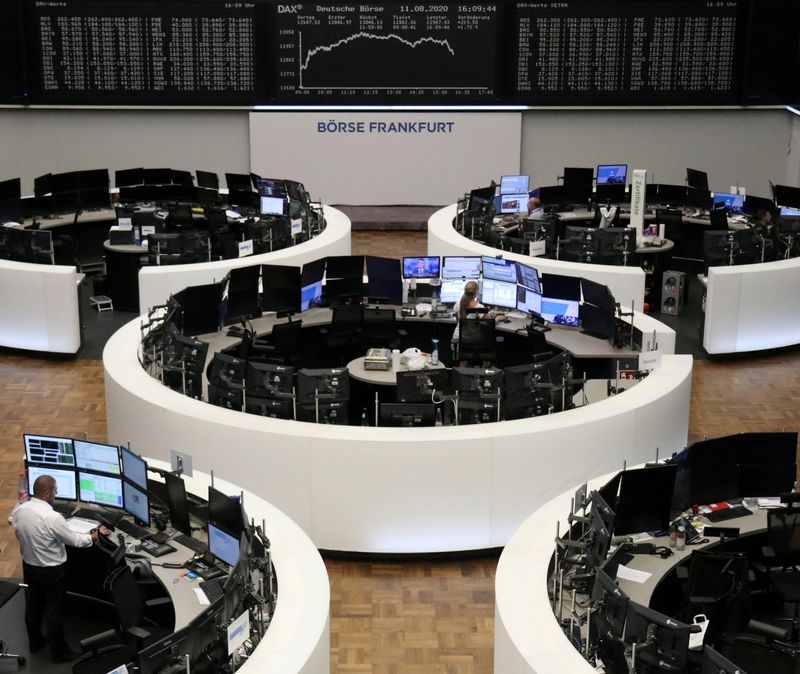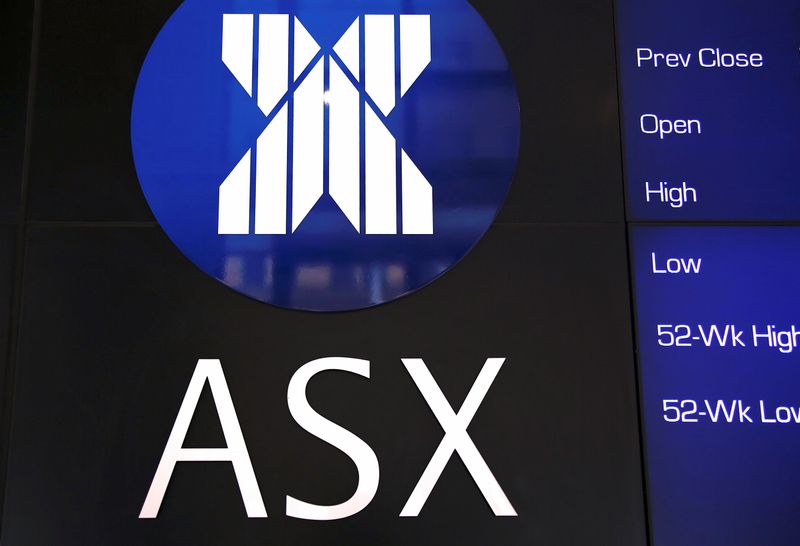By Herbert Lash
NEW YORK (Reuters) - Global equities wavered and the dollar fell to two-year lows on Tuesday as the broad U.S. stock market briefly scaled new peaks on better-than-expected corporate earnings but soon retreated on an economic outlook burdened by the coronavirus pandemic.
Both the Nasdaq Composite and S&P 500 set records soon after the opening bell following strong sales growth as reported by major U.S. retailers such as Walmart (NYSE:WMT), Kohl's and Home Depot (NYSE:HD).
But the benchmark S&P 500 drifted lower to break-even while the tech-rich Nasdaq, a sector that has outperformed during the rally off bear-market lows in March, trended higher. Declining stocks on both indexes outnumbered rising shares.
Neil Wilson, chief market analyst at Markets.com in London, said stocks have been steadily marching higher since a pullback in June, so the record was expected given the large infusions of stimulus by the Federal Reserve and government deficit spending.
"I'm still surprised we got there without additional stimulus. But my instinct is that this is too high, it looks massively overbought. I mean, it's not sustainable looking at the earnings," Wilson said.
Stephane Barbier de la Serre, macro strategist at Makor Capital Markets in Geneva, said the fresh highs in U.S. equities wasn't much of a surprise and he expected further gains.
"I don't seen how markets could go down without an exogenous shock of some sort on the macro or the pandemic side," Barbier said of the near future. "In the absence of a game-changer, I don't see markets turning around."
The S&P 500 gained 0.01% and the Nasdaq Composite added 0.36%. The Dow Jones Industrial Average fell 0.31%.
In Europe, the broad FTSEurofirst 300 index dropped 0.67% at 1,422.71, while MSCI's world equity index, which tracks shares in 49 nations, rose 0.71 points or 0.12%, to 572.59.
Gold rose more than 1% to climb back above the $2,000 level breached earlier this month, as the dollar fell against a basket of major currencies for a fifth consecutive trading day, under pressure from low yields and mostly bleak U.S. economic data.
The Fed's intervention in financial markets to maintain liquidity in the midst of the coronavirus pandemic has weakened the dollar, pushed risk assets to all-time highs and reduced demand for safe-havens.
The dollar index fell 0.524%, with the euro up 0.51% to $1.193. The Japanese yen strengthened 0.57% versus the greenback at 105.41 per dollar.
Spot gold prices rose 0.58% to $1,996.98 an ounce.
U.S. housing starts jumped 22.6% in July in the latest sign homebuilding is emerging as one of the few areas of strength in an economy suffering a record slowdown because of the pandemic.
U.S. Treasury yields slid as the market largely snubbed the strong housing data and looked for signs that a political stalemate in Washington over a round of aid was easing.
The benchmark 10-year Treasury note fell 1.4 basis points to yield 0.6687%.
Oil prices slipped after holding steady earlier in the session, as demand fears weighed despite high compliance with production cuts from members of the OPEC+ producer group.
Brent crude futures U.S. crude futures slid $0.46 to $42.43 a barrel.

